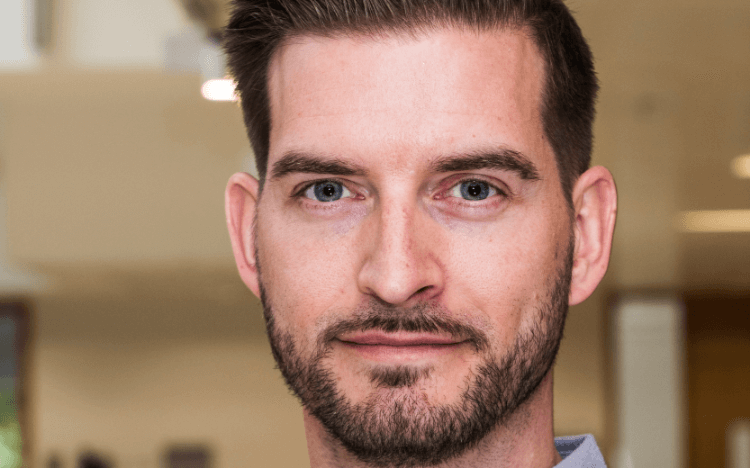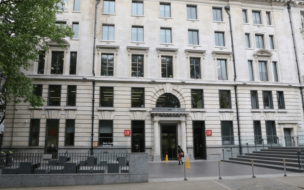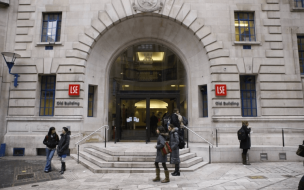Rob Etheridge heads up workforce management and analytics in the Human Resources department at Deutsche Bank.
“My current role involves shaping the bank’s workforce strategy for its 140,000 workers,” he explains. “This means providing insights through people analytics.”
Having cultivated this specialized focus for the past 10 years, Rob wanted to broaden his insights across other areas of the business, and keep improving his ability to help the bank tackle the challenges it faces in the ever-changing financial landscape.
While researching various business school programs, he came across the Executive Global Master’s in Management (EGMiM) program at LSE, dubbed the alternative to a traditional MBA.
“Having specialized in HR for some time, it felt right to find out what makes organizations tick as a whole,” he explains. “The EGMiM course at LSE seemed like a really good way to do that.”
Thanks to sponsorship from Deutsche Bank, Rob set out on the program in 2018.
Deeper understanding
For Rob, the EGMiM program fitted his lifestyle and learning outlook better than a conventional MBA.
With its contextual approach to learning, the program immediately stood out. “I really liked LSE’s focus on discovering why things are the way they are, as opposed to just churning out management models,” he explains.
“Understanding the context and reasons for something make learning stick—it feels more practical.”
Rob also believes that this style of learning harmonizes with his current role. “It felt like this approach was in line with the analytical nature of my career,” he explains, “and it was definitely in line with the way I’d like to continue to grow.”
Keeping up with change
So far, Rob has found the module in Marketing Strategy especially influential, prompting him to ask how new technologies could be applied to his current role.
“There’s so much to learn from the explosion in digital marketing that can be applied in the HR arena,” he says, “it was both interesting and immediately applicable at work.”
Understanding these trends can help HR professionals like Rob to stay abreast of the changing world of work, and use new technologies to streamline practices.
Digital innovations like AI, for instance, are already being implemented by HR professionals. One recent development at DBS bank saw the creation of an AI that helped the talent acquisition team to source suitable candidates.
The software, dubbed JIM (Jobs Intelligence Maestro) shortened screening times per candidate from 32 to eight minutes, and was able to respond to 96% of all candidate queries, significantly improving their application journey.
By understanding how this kind of digital disruption can be implemented, Rob believes, he will be able to keep up with industry trends, and influence the future of his sector.
“I believe in being ready to make the most of new opportunities,” he says.
New perspectives
Rob says that his fellow students on the program have been another valuable learning resource, helping him to further broaden his outlook.
The average EGMiM program attracts students of 20 nationalities, across a wide range of industries and job functions. For Rob, connecting with entrepreneurs and innovators was a particular highlight.
“It’s been fascinating to connect with people with their own startups,” he notes. “Their experience is very different from my own and it’s really adding to my perspective.”
As large organizations continue to partner with more agile startups, this insight is likely to be valuable in the coming years. In fact, one survey found that 53% of C-level banking executives believe partnering with fintech startups is important in 2019.
The future of work
When he graduates from the EGMiM program in 2020, Rob plans to apply what he has learned to challenges facing Deutsche Bank—from the increased popularity of online-only banks, to customer retention.
“I am particularly interested in working out what the future of work will look like for employees at financial institutions,” he says.
“I think my time at LSE will widen the range of opportunities I see, and give me confidence to work in a way that I wouldn’t have been able to previously.”
For others hoping to prepare themselves for the future of business, and bring fresh insight to their current role, he highly recommends the program.
“For anyone who has some professional experience behind them, and wants to ensure they have the knowledge and confidence to continue making the most of opportunities that come their way, the EGMiM is a winner,” he says.







